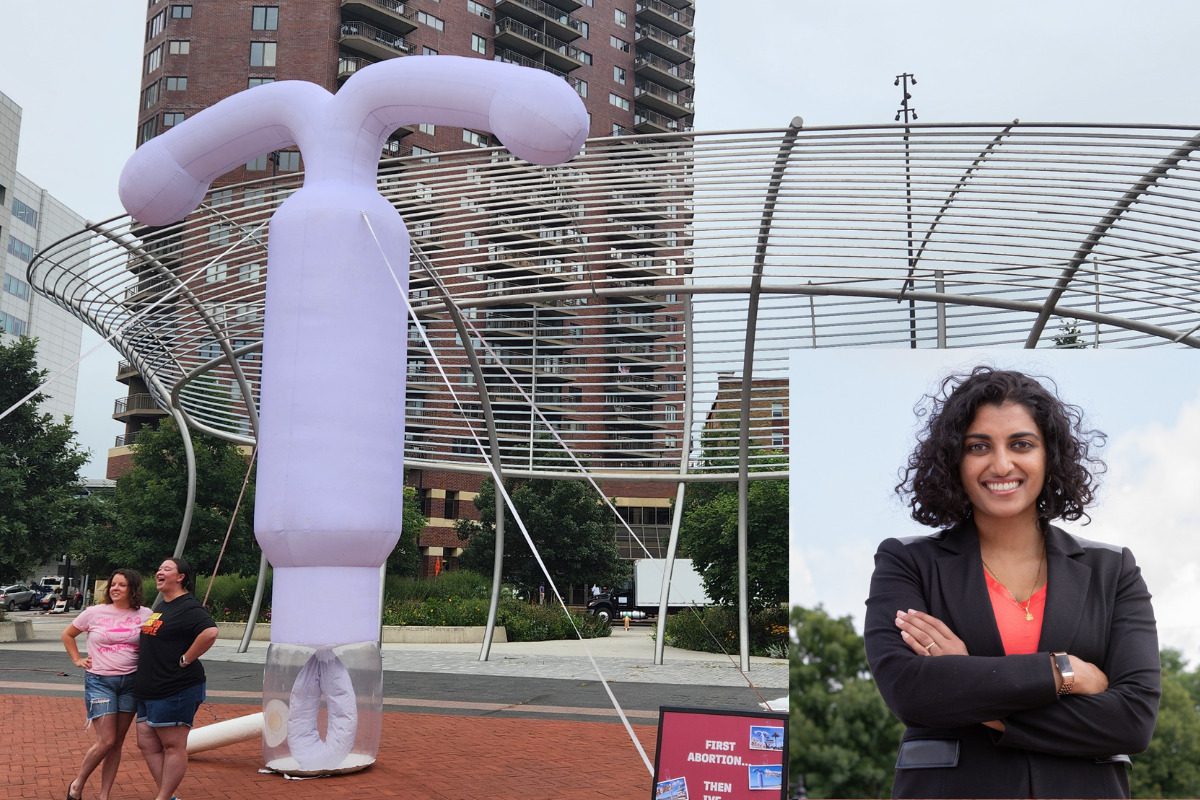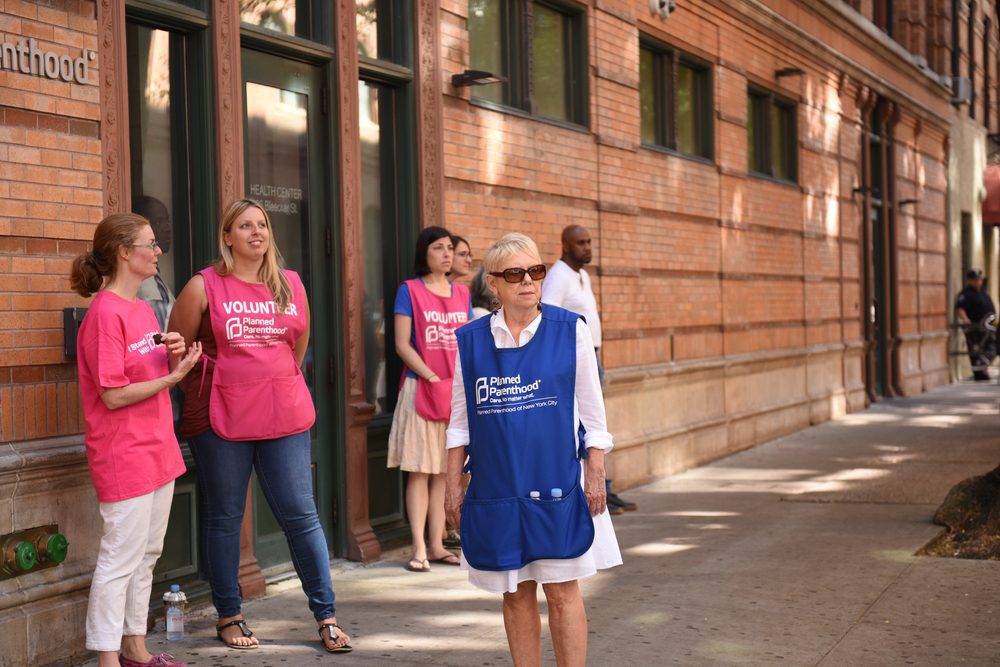
Nikoel Hytrek/Iowa Starting Line, Courtesy Megan Srinivas
Studies show Iowans aren’t getting birth control because they don’t have access to a clinic and/or it’s too expensive. That’s not good for people’s health, but there are clinics trying to close that gap.
Jenny*, a mother in rural Iowa, had health issues that made pregnancy dangerous. In fact, she almost died because of her first pregnancy, and doctors warned her she—and her baby—likely wouldn’t survive a second one.
To avoid that, she started using contraception, and relied on a local family planning health center to get it.
But when it was defunded by Iowa Republicans in 2017, the health center closed and Jenny didn’t have anywhere else to go in her remote, rural home.
“Suddenly, she found herself without contraception, living in a household with a boyfriend who was abusing her and did not understand the meaning of consent. So even when she did not want to engage in intercourse, she was forced to, and ended up getting pregnant,” said Dr. Megan Srinivas, an infectious disease and internal medicine physician in Iowa, when she told Jenny’s story at a press conference.
Like doctors had predicted, Jenny’s second pregnancy turned into a medical emergency: It was obvious the fetus wouldn’t make it and Jenny had to get an emergency, life-saving abortion.
Why does contraception access matter?
Access to contraception is an urgent issue in the US—especially in Iowa, where the number of OB-GYNs per capita is the lowest in the country. Iowa also bans abortion before most people know they’re pregnant—around six weeks—which makes access to contraception imperative.
“It’s stories like this that we can prevent. It’s lives like this that we can save. And it’s disasters like this that we see in the health care system every day that we can stop from happening, if we ensure that every single person has a right to contraception that they deserve,” Srinivas said.
Data from multiple studies shows contraception access has worsened in Iowa since 2017. It’s harder to get birth control, and the quality of care patients receive has diminished. The people who are impacted the most are women of color, young women, and those with low incomes.
These challenges stem from a 2017 law passed by the Iowa Legislature, which denied Medicaid funding to family planning clinics that also provided abortions. As a result, at least four Iowa clinics have closed.
Loss of access
Patients who relied on those clinics stopped getting contraceptive care altogether, a study published in September 2022 found. That led to more unplanned pregnancies and more abortions.
The study also found that when clinics closed, the number of people not using contraception at all went up. For people who continued using birth control, or who changed to a different kind, their satisfaction with the birth control method went down.
Srinivas said that’s one of the biggest impacts of people not having easy access to care.
“What we often find is if people can’t get access to the contraception they need, either people choose not to use contraception because it’s not convenient, or they will choose to use it inconsistently,” she said.
Not one size fits all
Convenience is important. Methods like IUDs, implants, and shots are simple because a patient has it done and then doesn’t have to worry about it for a while.
The opposite is true with contraception methods like birth control pills, which have to be taken every day, at the same time, to be fully effective.
Srinivas said most people don’t take birth control pills perfectly, so the true effectiveness of the pill—based on how people usually use it—is only around 72%.
“Skipping a pill here and there is very easy to do if you forget,” she said, pointing out that people forget to take other medications all the time.
That makes access to other methods even more important.
Studies have shown people are also using condoms more. Srinivas said that’s good for preventing sexually transmitted infections (STIs), but to do that and prevent pregnancy they also have to be used correctly—and that’s not always the case.
“These are great methods to utilize. And I still counsel everybody (to) use condoms, especially because of STI prevention, but when it becomes the only source of contraception available, then we start to see a lot of gaps,” Srinivas said.
Affordability
The most effective birth control methods are expensive, and they require a procedure from a doctor. Having to travel is another added cost.
Srinivas said the best time to get people on birth control is after delivery, but providers also need to be able to reassure people they can afford it.
“If they don’t have coverage to help them get that, then we’re not going to be able to say, ‘Hey, you could afford this,’ or even have them come back for their follow up appointment,” she said.
This year, Republicans in the Iowa Legislature passed a bill to expand postpartum Medicaid coverage, but they limited the number of people who qualify for coverage. Estimates show as many as 1,300 women—and 400 newborns—might lose their health coverage.
There are solutions to the access and cost problem, though.
Title X Clinics
Thanks to the Title X Family Planning program, there are about 30 clinics in Iowa that offer birth control and other family planning resources, with prices based on what patients can pay.
Allison Smith is the executive director of the Family Planning Council of Iowa, which oversees the money 13 of those clinics receive from the federal Title X program.
“The best contraceptive method is the one that works best for the client,” she said. “The best way to do that is for clinics to have as many options as they are able to offer.”
That includes the expensive, long-lasting, convenient methods like IUDs, the shot, and the implant—some of the hardest for low-income Iowans to obtain.
Project 2025, the 900-page playbook put together by allies of Donald Trump and people who worked in his administration, calls for gutting Title X and using the federally funded family planning program to focus on “fertility awareness and holistic family planning.”
Smith said people not being able to get birth control can impact their lives in every way.
“Having a child is a very big decision: physically, mentally, emotionally, and financially,” she said. “That’s a responsibility that you have for at least 18 years. And, in reality, your whole life.
“If someone’s not ready to have a child, studies have shown it’s best to have them wait. And birth control allows that to be possible.”
*Jenny is a pseudonym Srinivas used for the patient
Support Our Cause
Thank you for taking the time to read our work. Before you go, we hope you'll consider supporting our values-driven journalism, which has always strived to make clear what's really at stake for Iowans and our future.
Since day one, our goal here at Iowa Starting Line has always been to empower people across the state with fact-based news and information. We believe that when people are armed with knowledge about what's happening in their local, state, and federal governments—including who is working on their behalf and who is actively trying to block efforts aimed at improving the daily lives of Iowan families—they will be inspired to become civically engaged.


House GOP fast-tracks budget bill that would cut off Medicaid funding to Planned Parenthood
The budget package proposes steep health care cuts—and includes a new push to block patients from accessing reproductive care. In a 30-24 party-line...

Report: Majority of pregnancy-related deaths in Iowa could have been prevented
A newly released report found that 95% of pregnancy-related deaths in Iowa were preventable, and those deaths disproportionately affected women who...

Shattering stigma: Iowa woman shares her abortion story to empower others
There are different types of people who seek abortions. Here is the story of one of those women—the everyday woman who accidentally got pregnant....

New Iowa bill would ban abortion pill, sparking backlash
Republican proposes bill to effectively end 74% of abortions in Iowa by banning a pill that’s safer than penicillin and Viagra. Seventy-four...

Way more Americans are getting sterilized since Roe was struck down, research finds
A new study has found that from May to August 2022, vasectomies surged by 95% and tubal sterilizations increased by 70% among adults ages 19 to 26....

People are leaving states with abortion bans, according to study
A new analysis from the National Bureau of Economic Research found that since 2022, states with near-total abortion bans appear to have lost 36,000...





